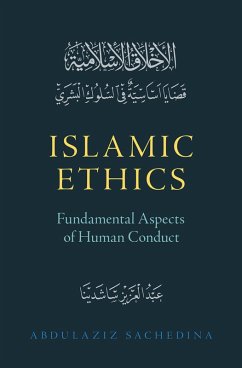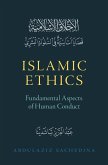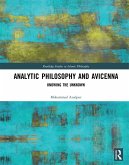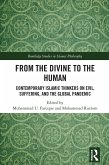There have been two main traditions of writing on ethics in the Islamic tradition, one philosophical and related to the works of Aristotle and other Greek philosophers, represented by thinkers such as Avicenna, and one theological, represented by such figures as the famous theologian al-Qadi Abd al-Jabbar. Some later scholars attempted to combine those two traditions. For the most part, however, the views of the jurists have been ignored. Abdulaziz Sachedina here calls attention to this third tradition of ethics, which has its home in legal literature. The problem is that Islamic jurists did not produce a genre of ethical manuals, and their form of ethics, which Sachedina terms juridical ethics, must be derived or extracted from works that ostensibly treat legal rulings and obligations, or scriptural hermeneutics and legal theory. Presenting an outline of the version of Islamic ethics that is embedded in the textual legacy of the Islamic legal tradition, he argues that this juridical ethics is an important, even dominant form of ethics in modern Islam. He notes that this form of ethics has been challenged by modernity and examines the variety of ways in which legal ethical thinkers have reacted. How do Muslim religious leaders come to grips with modern demands of directing their communities to live as modern citizens of nation-states? What kind of moral and spiritual resources are being garnered by their scholars to respond to the new issues in sciences, more immediately in medicine, and constantly changing social relationships? To answer these pressing questions, it is necessary to go beyond the philosophical ethics of virtue and human character and acknowledge the importance of ethics to the formulation in Muslim interpretive jurisprudence of religious and moral decisions that are based on reason and revelation.
Dieser Download kann aus rechtlichen Gründen nur mit Rechnungsadresse in A, B, BG, CY, CZ, D, DK, EW, E, FIN, F, GR, HR, H, IRL, I, LT, L, LR, M, NL, PL, P, R, S, SLO, SK ausgeliefert werden.









